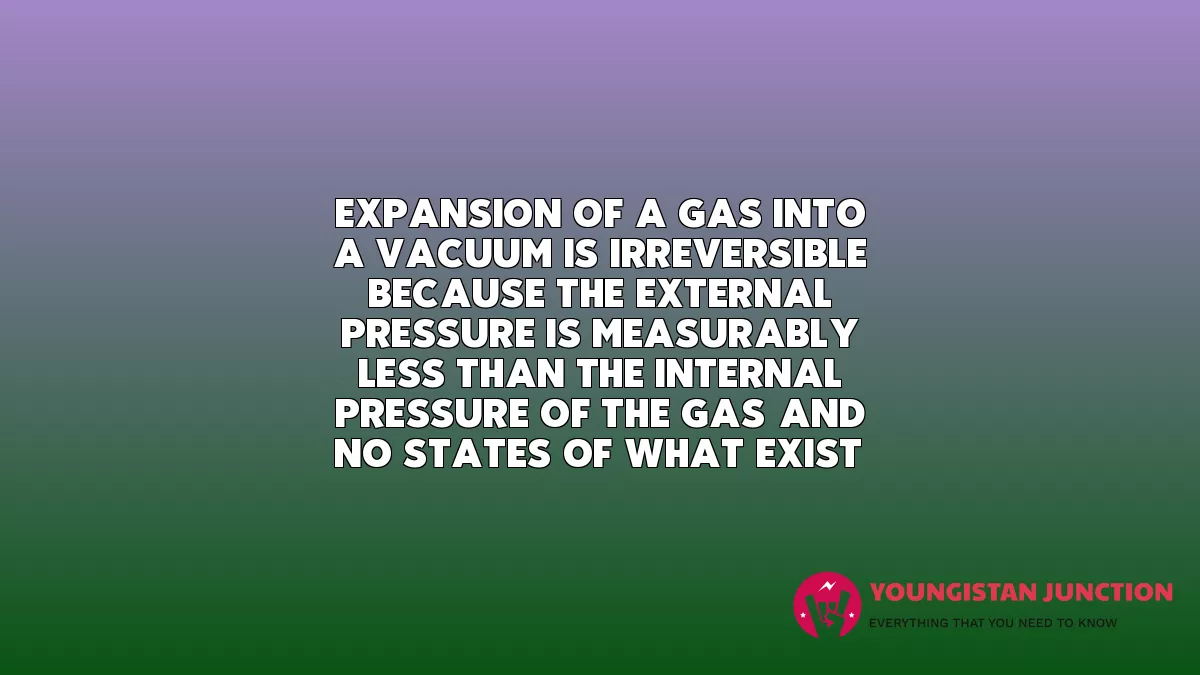Expansion of a gas into a vacuum is irreversible because the external pressure is measurably less than the internal pressure of the gas, and no states of what exist?
- Correct Answer: composition
- balance
- liquid
- equilibrium
Explanation: can continue indefinitely. In contrast, the expansion of a gas into a vacuum (Pext = 0) is irreversible because the external pressure is measurably less than the internal pressure of the gas. No equilibrium states exist, and the gas expands irreversibly. When gas escapes from a microscopic hole in a balloon into a vacuum, for example, the process is irreversible; the direction of airflow cannot change. Because work done during the expansion of a gas depends on the opposing external pressure (w = PextΔV), work done in a reversible process is always equal to or greater than work done in a corresponding irreversible process: wrev ≥ wirrev. Whether a process is reversible or irreversible, ΔE = q + w. Because E is a state function, the magnitude of ΔE does not depend on reversibility and is independent of the path taken. So Equation 18.14.
More Random Questions
Ans: active glaciers
Ans: Kerala
Ans: Diana Pundole
Ans: Every 15,000–30,000 km
Ans: shrinking
Ans: Thailand
Ans: Engine misfire
Ans: cartilage
Ans: Raghupati Bhatt
Ans: analogous
Ans: space
Ans: BPCL
Ans: Neeru Yadav
Ans: lion and zebra
Ans: Rubber

